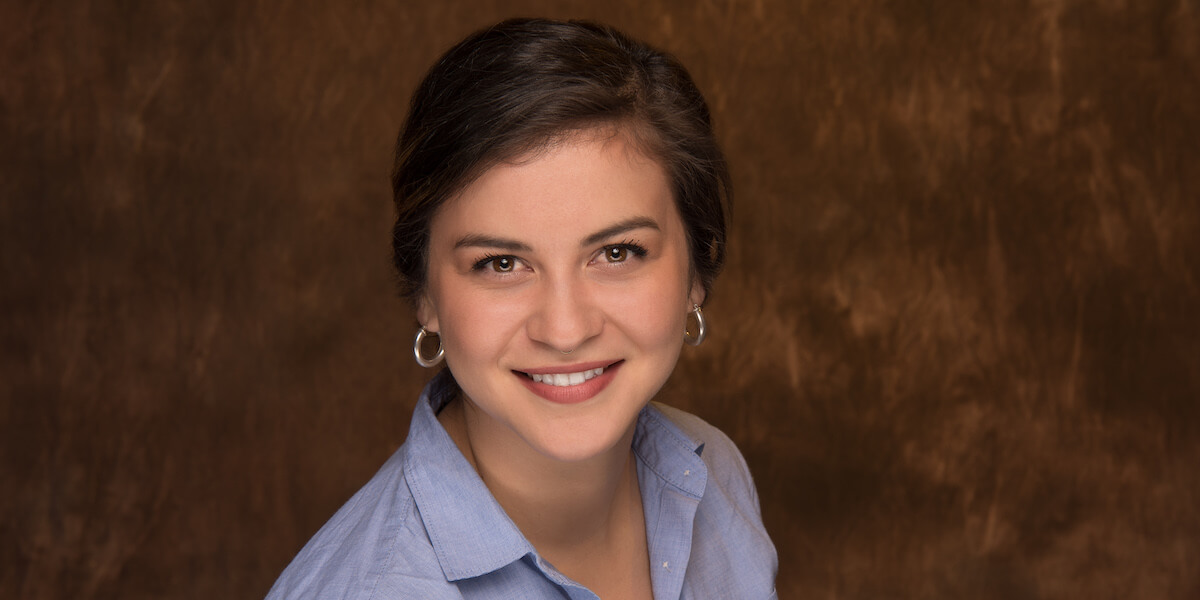
Sophia Plata’s novel research seeks to improve the efficiency of water treatment processes. Image from: Sophia Plata
Sophia Plata dreams of universal clean water in Latin America.
An environmental engineering Ph.D. candidate at the USC Viterbi School of Engineering, Plata’s research is inspired by a desire to improve the availability of safe water in countries like Mexico, her family’s country of origin.
Plata works under the guidance of Professor Amy E. Childress, the Gabilan Distinguished Professor of Science and Engineering and the director of environmental engineering in the Sonny Astani Department of Civil and Environmental Engineering, to find ways to overcome challenges in treating salt or wastewater to recycle them for local reuse.
“Everyone needs water, and everyone needs clean water,” Plata said. “Focusing my research on something that is so important and applicable to all people is definitely something that drew me to the field.”
Water desalination is a process that uses membranes as filters to turn ocean water into freshwater. Pumping water over these membranes requires lots of energy and therefore, lots of emissions. Additionally, the removal of salt from water results in a byproduct of saline brine: a highly concentrated salt solution that is pumped back into the ocean and can cause damage to ocean ecosystems.
Plata wants to reduce the environmental impact of water desalination by reducing the amount of brine released to the environment, along with the amount of energy expended in the process.
She primarily researches a membrane process called pressure-retarded osmosis, or PRO. PRO gives researchers the ability to harness the energy created by salinity gradients. Osmosis is a process where water flows from an area with a low concentration of solute, such as salt, to an area with high concentration of solute to equalize the concentrations on the two sides of the membrane. No energy is needed for water to flow “down” its gradient; this is a spontaneous process that actually produces energy. This energy can be reused to drive desalination, reducing the external energy required to drive these processes.
The first woman in her family to attend college, Plata graduated from Widener University in Pennsylvania in 2015 with a bachelor’s degree in civil engineering. She was accepted as a Ph.D. student at USC and began her studies in the fall of that same year. In 2017, she earned her master’s in environmental engineering from USC, while in the process of studying for her doctorate.
Plata became interested in her current research during her junior year of college, when she took a class on water treatment that resonated with some of her personal experiences.
Although Plata was born in San Diego, she feels closely connected to her Hispanic heritage. Plata’s family is originally from Mexico, where her mother currently lives.
“When I go home to my mother in Mexico for the holidays, I have to be a lot more aware about water safety,” said Plata, who hopes to one day improve the quality of Latin America’s drinking water. “I can’t drink out of the tap and sometimes, we’ll just run out of water; little things like that are things we take for granted in the States.”
Beyond her research, Plata has proudly embraced her Hispanic heritage at USC through her involvement in SHPE, USC’s Society for Hispanic Professional Engineers. SHPE is a national organization that seeks to support and uplift Hispanic students pursuing education and careers in science, technology and engineering.
“I was one of only three Hispanic students out of over 100 students in my graduating class at Widener,” Plata said. “Coming to USC and joining SHPE has given me an opportunity to be a part of a community that understands and relates to my experiences.”
Plata is passionate about SHPE’s mission to increase diversity in STEM, specifically to support graduate students from underrepresented groups across the country. In 2017, she was elected regional graduate representative of SHPE-USC. This past year, Plata ran for national graduate representative, and she now works on a board of directors that helps to plan and develop graduate programming in chapters of SHPE across the country.
“Sophia has impressed me so much with her technical capabilities and her enthusiasm for giving back to her community,” said Professor Childress, Plata’s Ph.D. advisor. “She is highly effective as an independent researcher and a team player and is insightful in a way that exceeds her years.”
After graduating, Plata hopes to become a professor, where she could continue her research and teach the next generation of engineers.
“I’m really passionate about reforming and improving the way we approach the engineering curriculum to make it accessible to all students,” she said.
Published on March 12th, 2020
Last updated on March 12th, 2020











